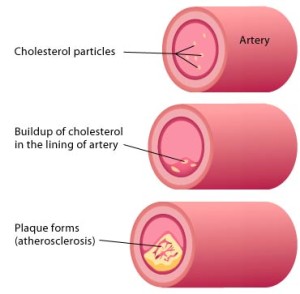Drugs which promise to help people burn fat faster and lower unhealthy cholesterol levels are naturally popular medicines. Getting the same results faster is usually a draw for people, even if getting those hasty results means taking on an aspect of danger. Any time the body is pushed too hard to make changes too quickly, there is some potential for serious issues to develop or occur. FenPhen showed us how rapid weight loss could literally kill people in the past and these days, certain high cholesterol drugs are showing us just how dangerous they can be to the human body as well.
The Classes of Cholesterol Drugs
 First, it’s important to know that not all drugs which reduce cholesterol work in the same ways. There are many different classes of high cholesterol medications. Statins, including Lipitor and Crestor, are known for cutting LDL cholesterol and triglycerides. They may also have serious and harmful interactions with grapefruit juice of all things, so keep that in mind if you happen to drink it. There are bile acid binding resins, including Colestid, which are actually known to increase triglycerides as a side effect. In addition, some drugs work to lower cholesterol by hindering its absorption and fibrates, niacin and omega-3 fatty acids are all more natural means of cutting cholesterol.
First, it’s important to know that not all drugs which reduce cholesterol work in the same ways. There are many different classes of high cholesterol medications. Statins, including Lipitor and Crestor, are known for cutting LDL cholesterol and triglycerides. They may also have serious and harmful interactions with grapefruit juice of all things, so keep that in mind if you happen to drink it. There are bile acid binding resins, including Colestid, which are actually known to increase triglycerides as a side effect. In addition, some drugs work to lower cholesterol by hindering its absorption and fibrates, niacin and omega-3 fatty acids are all more natural means of cutting cholesterol.
Lipitor
Lipitor is just one of many statin drugs which work to cut cholesterol by preventing the formation of “bad” LDL cholesterol. While it may be quite effective at reducing levels of bad cholesterol in the blood, this medication especially has garnered much recent media attention. A definite link has been established between the use of Lipitor and contracting Type II diabetes. It’s a hot topic right now and while information slowly makes its way to the public, one thing is certain – Lipitor sales are plummeting. Other high cholesterol medications haven’t had such side effects, so people are all too happy taking their business elsewhere. Right now, this highly harmful drug is costing users hundreds of dollars a month. If you are interested, you can find the latest Lipitor price here.
Niaspan
Niaspan is actually a prescription form of Niacin, one of many B Vitamins which should be part of a person’s usual intake. However, because those same B Vitamins are usually showered on breakfast foods and found in few other places throughout the day, many people are learning what it’s like to live with a significant shortage of Niacin, among other minerals. Niacin helps to reduce LDL and triglyceride levels in the blood but it has been known to present some unique and nasty side effects. These can include flushing, peptic ulcers, high blood pressure and even gout. Prescription Niacin is actually cheap compared to many other high cholesterol drugs.
Lovaza
This is a fatty acid supplement only available by prescription. Because one of the main ingredients is fish oil, one of the most prevalent side effects is a fishy taste in the mouth, quite naturally. While fatty acids do relatively little to stop cholesterol from forming, they do cut down on triglyceride levels and that does help with high cholesterol. The possible infection rate increase would be troubling if more people suffered from this particular side effect. As is, Lovaza is a relatively safe high cholesterol medicine and it certainly isn’t giving anyone diabetes.
Fibrates
Fibrates as a whole tend to have few negative side effects. However, among complications which can occur when using high cholesterol drugs, they do present one of the most painful possibilities. Drugs like Lopid, TriCor and Lofibra are all excellent for increasing HDL levels while cutting triglycerides but they also have a tendency to cause gallstones for the user. This is essentially trading one potentially dangerous bad health quality for one which will eventually be a cause for invasive surgery – an awful deal however you look at it. Better options might be available.
Zetia
This is a compound which effectively stops the body from absorbing cholesterol found natural in meats and other fatty foods. The side effects are relatively mild when compared to those of other high cholesterol drugs and may include gastrointestinal distress, tiredness and soreness in the muscles. These are certainly better side effects than acquiring a debilitating disease or dying. The average Zetia prescription costs about 170$ for a month of 10mg pills, so insurance will definitely help make this cholesterol medicine more affordable.
Conclusion
There are many different kinds of high cholesterol drugs available today. They help to control the user’s cholesterol levels in different ways and each of these has their own unique potential side effects. Finding the high cholesterol medications which do the most good for you while forcing you to suffer through the fewest bad side effects is a job for you and your doctor to share. Before taking anything your doctor prescribes you, be sure to do some research on it and see if you feel like it’s safe to take. Nobody is perfect and physicians make bad calls too sometimes; you must always be watching out for you.
Share This